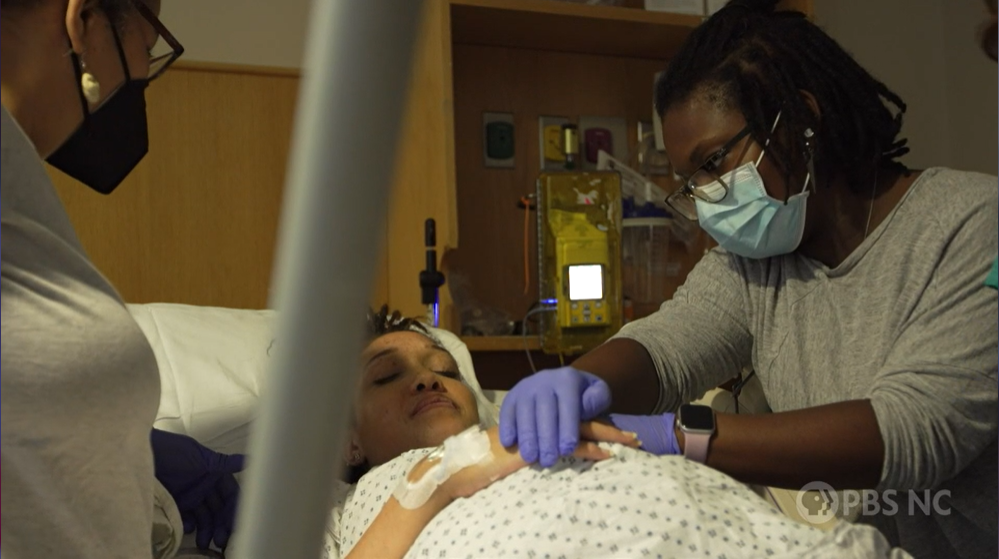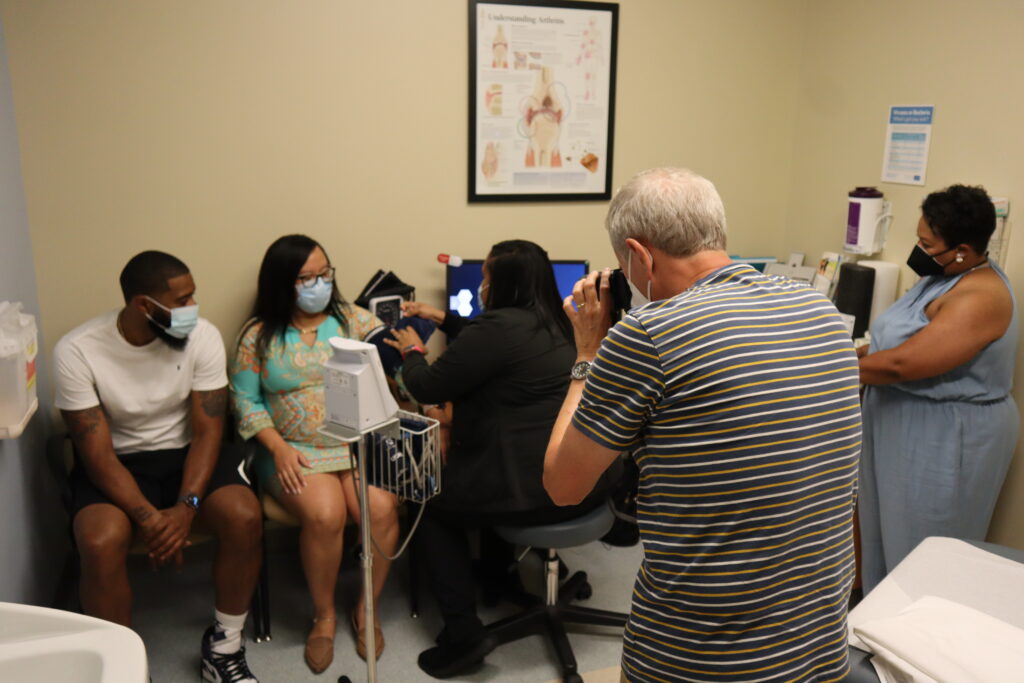Lived Experience Accessible Doula (LEADoula)

Childbirth mortality rates are 3-4 times greater for Black pregnant people than their white counterparts, no matter their socioeconomic or education status, according to the Centers for Disease Control. Given this alarming disparity, Family Medicine Assistant Professor Venus Standard, MSN, CNM, founded the Lived Experience Accessible Doula (LEADoula) program, formerly named Alliance for Black Doulas for Black Mamas (ABDBM).
LEADoula’s goal “is to improve Black women’s maternal and birth outcomes by increasing their access to social, emotional, and educational support from professionally trained Black Doulas.” A doula is a professionally trained support person for a person in labor, providing emotional, physical, and educational support to a mother and her family during the perinatal and postpartum periods. Doulas have been shown to improve birth outcomes and maternal satisfaction in the birthing process. Having Black doulas help Black mothers is important considering trust factors, possible shared lived experience, and cultural needs that might otherwise be overlooked and adversely impact the birthing experience and outcome. The program graduated its first class of Black doulas in July 2021 and recently was awarded a 3-year grant from the Duke Endowment that will support the training of 120 new Black doulas, increasing access to doula services for Black pregnant persons by 300 to 600 families per month.
The program will begin the training of its 5th cohort of doulas on March 10th, 2023. Applications for this cohort are closed – information on the 6th cohort of doulas will be updated on the program’s website in the near future.
 ABDBM was also featured extensively in the media, with two highlights being beautifully filmed segments in a PBS “Sci NC” episode, and a WRAL documentary entitled “Critical Term: Why are Black mothers and babies dying?” View the PBS segment HERE, and the important WRAL documentary, HERE.
ABDBM was also featured extensively in the media, with two highlights being beautifully filmed segments in a PBS “Sci NC” episode, and a WRAL documentary entitled “Critical Term: Why are Black mothers and babies dying?” View the PBS segment HERE, and the important WRAL documentary, HERE.
To learn more about the program, visit their website or contact reid_johnson@med.unc.edu.
